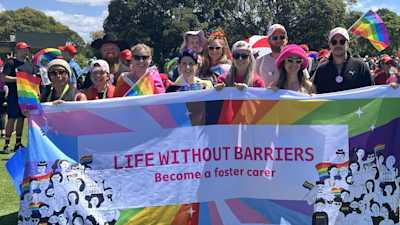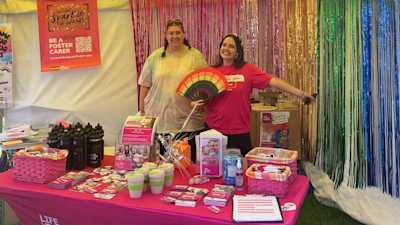Looking back on 30 years of Life Without Barriers walking alongside people and communities across Australia.
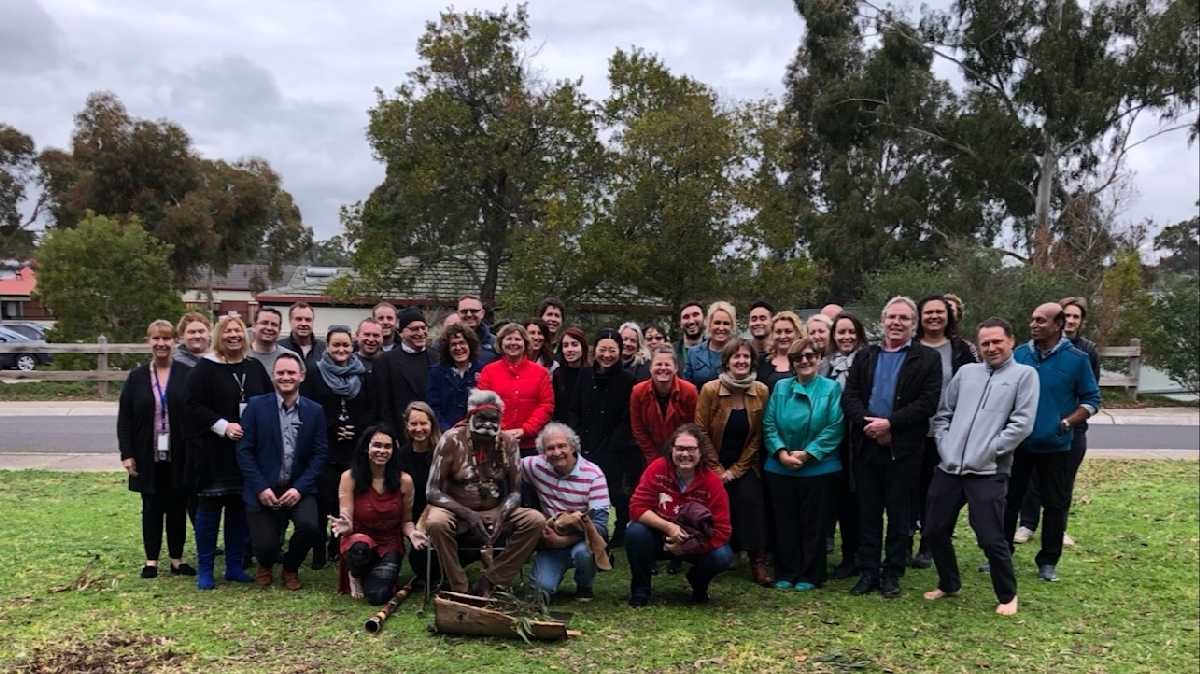
Image: Photo of Life Without Barriers staff and Uncle Ian Hunter standing on a field.
This year, we celebrate three decades of milestones, memories and community spirit. Throughout September and October, we are sharing 30 stories for 30 years.
2009: Our first Reconciliation Action Plan
In 2009, Life Without Barriers launched its first Reconciliation Action Plan (RAP). It was a defining moment in our history, built on the belief that reconciliation needs to be more than words, it has to be lived in action.
That year, we formalised our commitment to strengthening relationships with Aboriginal and Torres Strait Islander peoples through the establishment of the National Cultural Respect Steering Committee. With equal representation of Aboriginal and Torres Strait Islander and non-Indigenous staff, the committee ensured voices and perspectives shaped our RAP from the very beginning.
We now celebrate Aboriginal and Torres Strait Islander cultures and traditions at events across the country, acknowledging the traditional custodians of the lands on which we live and work. These events are more than symbolic, they create space for conversations, connections and shared learning that have continued to guide us into the present.
By June 2010, we had also exceeded our target of increasing Aboriginal and Torres Strait Islander representation in our workforce. This achievement strengthened our ability to deliver culturally respectful services and supports, while also enriching our organisation with knowledge, wisdom and cultural understanding.
Looking back, the steps in 2009 set a strong foundation for what has become a long and evolving journey. They remind us that reconciliation is built through action, relationships and respect, and that progress comes from the courage to listen and the willingness to learn.
What started as an emerging commitment has grown into an organisational movement, one that continues to shape who we are and how we walk alongside Aboriginal and Torres Strait Islander peoples today.
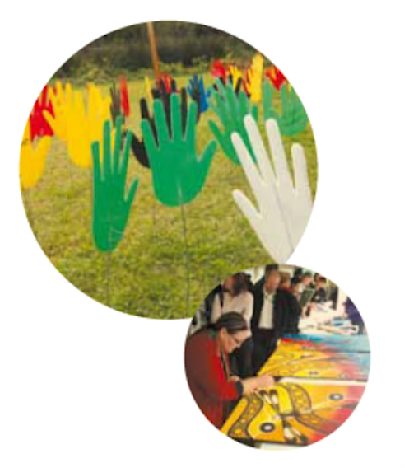
Image: Two images in circles. 1. Painted green, white, yellow, black and red cardboard hands mounted on sticks in the grass. 2. A group of people looking at artwork displayed on a bench.
2010 - 2011: Life Without Barriers’ Housing-First Approach
In 2011, Life Without Barriers expanded its work in homelessness services with the launch of the Regional Assertive Outreach Program in South Australia. The program was designed to break the cycle of homelessness by focusing on a housing-first approach.
This meant securing safe, stable accommodation as the first step, then working alongside people to strengthen their connections and pursue their own goals.
2011: Alex's story
In April 2011, 22-year-old Alex joined the Regional Assertive Outreach Program. Before this, he had been moving between different places to stay, unsure of what each day would bring.
With support from his outreach worker, Alex found a home in regional South Australia. Having his own place meant he could cook his own meals, sleep in his own bed, and start planning for the future he wanted.
"I didn’t have enough money to rent anywhere, so we would stay at friends’ places each night, sleeping on their lounge or floor," Alex said.
"When I came to Adelaide, I joined the Outreach Program and with help from my support worker, I got my own place and some furniture."
The housing-first approach provided a strong foundation for Alex. He explored seasonal work and planned to return to Victoria with a rental reference to support his next steps.
"I’m keen to start fruitpicking and I’ve applied for a job back in Victoria. Before I leave though, I hope to get a good rental bond reference from Glen so I can secure a lease in Victoria," he said.
Alex’s story shows how secure housing, combined with consistent support, can open the way for people to build stability and create the life they want.
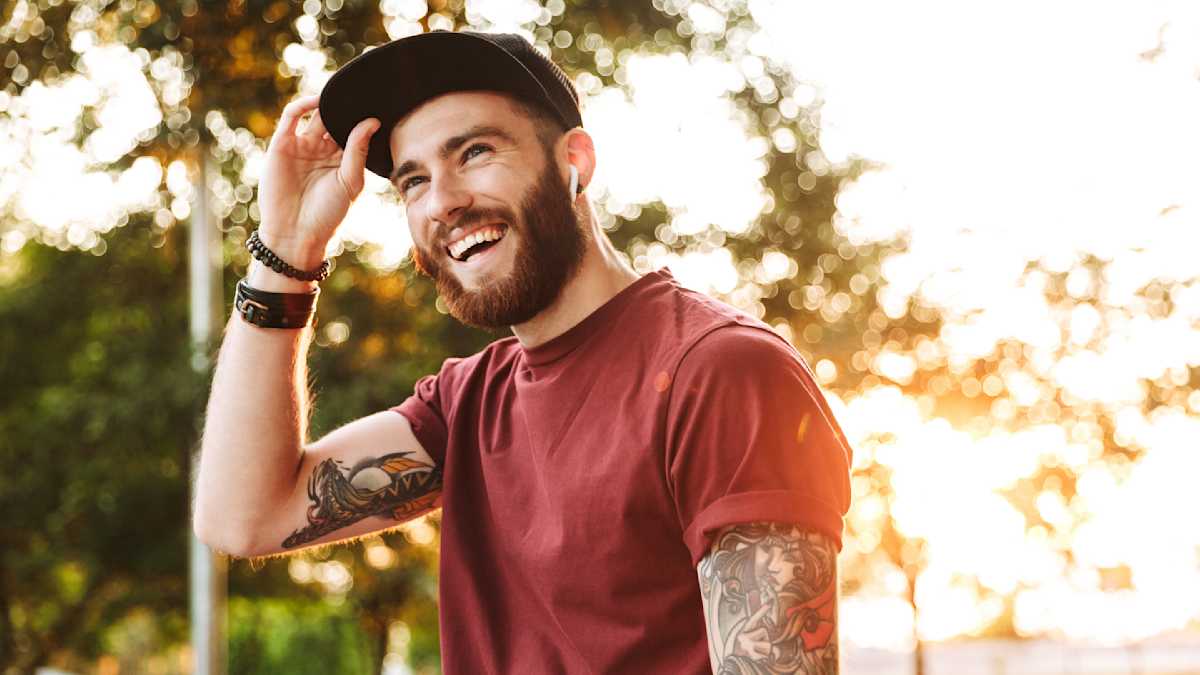
Image: A man wearing a red t-shirt and black cap standing outdoors, smiling.
2012: A new chapter begins for Emma
In our 2012 Annual Report, we shared the story of a young woman who was just beginning to build the future she had long imagined. At 20 years old, Emma moved in with her host family through Life Without Barriers’ Supported Accommodation Program.
That year, Emma started her working life. She began with several months of work experience at a local childcare centre, where her passion for children and her enthusiasm for learning quickly shone through. Her dedication was recognised, and she was soon offered a formal position, working several days a week.
"I love my job. I love children and learning new things and the staff at the centre are wonderful," Emma said.
Alongside her new role, Emma took another step toward her goals by enrolling in a childcare course at TAFE. Balancing study with part-time work was not easy, but she embraced it with determination.
"It’s hard work balancing study and my shifts at the day care centre, but my family are very patient and supportive," she explained.
Emma also began developing everyday life skills, from cooking to managing money, with dreams of one day running her own household and creating a family of her own. With her earnings, she was proud to save for holidays and purchases that made her space feel more like home.
"My next purchase is a thermo-mix which I’m saving for," she shared.
Emma’s carer, Sarah, reflected on her progress, saying, "We are so proud of Emma as we see her connecting the different pieces of her life together."
At that time, Emma’s goals included completing her Certificate III in Child Care, gaining her driver’s licence, and saving for her first car. She was acquiring the skills and tools to help her on her journey and, in doing so, was building strong foundations for an independent and bright future.
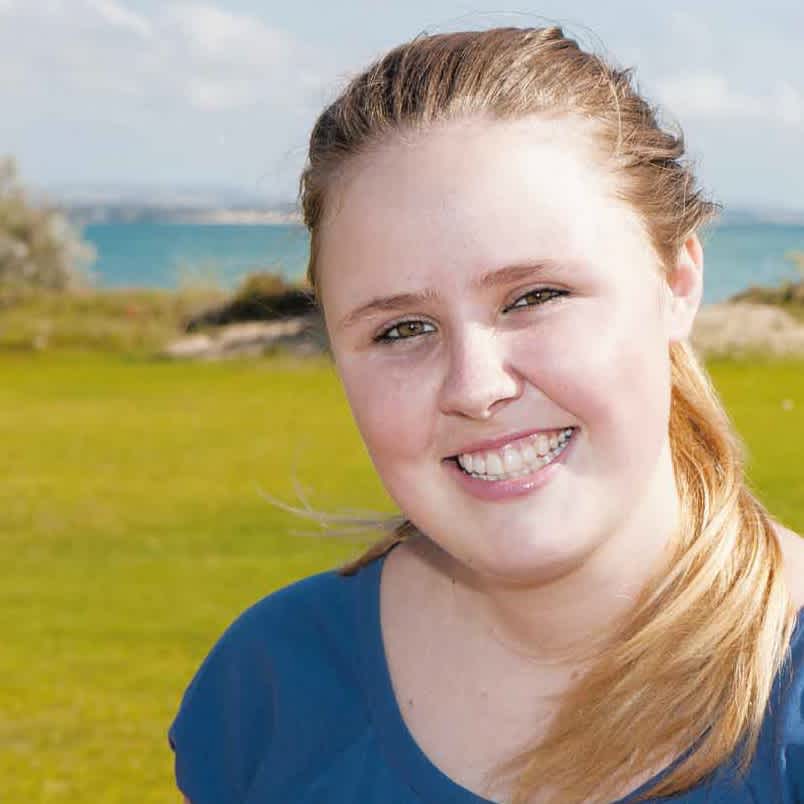
Image: Close-up of a woman with blonde hair pulled back into a ponytail, smiling at the camera.
2013: Building a future, Hassan’s journey
In 2013 we met Hassan, an eighteen-year-old in Western Australia who was looking ahead with excitement at what his future might hold. His path to that point had been anything but ordinary.
In 2010, at just sixteen, Hassan fled Afghanistan and began a long and uncertain journey through Pakistan, Malaysia, Indonesia, and Christmas Island before finally reaching Melbourne in 2011. Soon after, he was relocated to Perth, where he entered the Unaccompanied Humanitarian Minors program.
With guidance from Cultural Support Workers, Hassan navigated the challenges of settling into a new country. He recalls how much it meant to have someone from his own background helping him learn everyday skills like cooking, shopping, and cleaning, as well as offering support during difficult times.
Those early lessons in resilience and encouragement ignited something important for Hassan: a belief in the power of education and the value of working hard to create change. With consistent mentoring and encouragement, he pursued his studies in welding engineering, with his sights set on an apprenticeship.
"Education is the most important thing in our life and can change our life," he reflected.
By 2013, Hassan wasn’t just focused on building his own future, he was also shaping community conversations. Through his activism, he challenged negative perceptions about asylum seekers and shared his pride in being Hazara and Australian.
"I want all Australians to know that Hazara are good people and they will make great contributions to this country," Hassan said.
Hassan’s story stands as a reminder of how strength, support, and opportunity can shape a promising future.
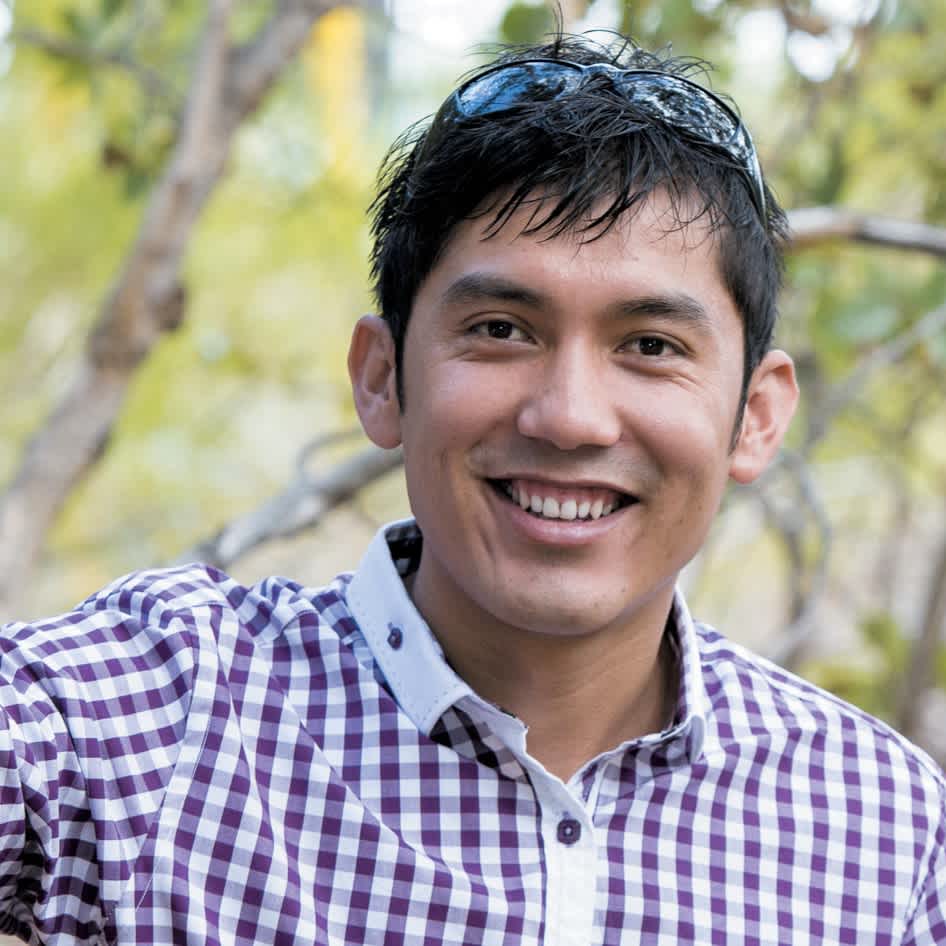
Image: A man wearing a checkered shirt with sunglasses on top of his head smiling at the camera.
2014 - 2015: Looking back at our community aged care services
2014 and 2015 were years of growth for our aged care services, as more people looked for flexible supports to stay active and connected in their communities.
We delivered a wide range of options, from home-based services such as domestic assistance, personal and clinical care, transport and home maintenance, to community activities, recreation programs and carer support. These were offered through Veteran’s Home Care, Home Care Packages, Home and Community Care (later the Commonwealth Home Support Program), Queensland Community Care and fee-for-service programs.
In Darwin, our aged care day program grew to 164 clients in just over a year. A new transport trial gave more options for people in the outer suburbs who didn’t have access to public or private transport.
It was also our first year delivering a home support program in South Australia. By June 2015, 197 people were engaged with the service, supported by staff skilled in both domestic and social supports. Drawing on national expertise, we quickly shaped the program to meet the needs of the Adelaide community.
In Victoria, we strengthened supports through the Department of Veteran’s Affairs and the Commonwealth Home Support Program, adding a registered nurse and program assistant to enhance individual planning.
In Queensland, the opening of the Capalaba Seniors Activity Centre created a welcoming new space designed around choice and wellbeing. Converted from a suburban house, it offered a craft room, music room and reading room, and embraced a consumer-directed model of care.
Reflecting on 2014 to 2015, it was a time of expanding opportunities, building connections and ensuring people could shape services in ways that supported their independence and wellbeing.
